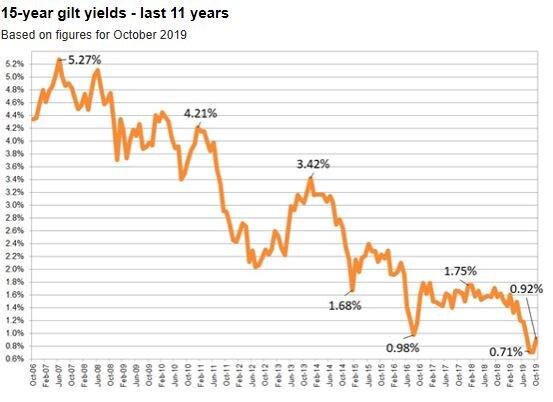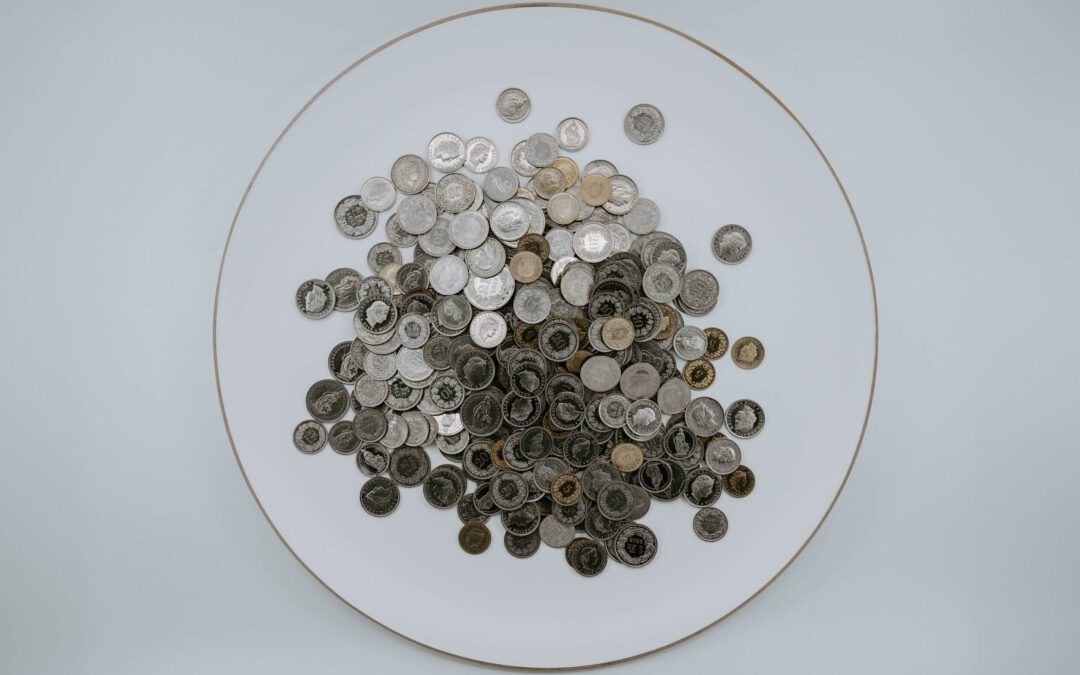For the financial year ending June 2019, £34 billion was transferred out of UK Defined Benefit pensions.
More than 390,000 individuals have transferred out of defined benefit schemes in the last 3 years.
Transfer values being offered are usually based on 22 times the promised annual income.
If you are a UK citizen who has emigrated to New Zealand, these are the following 5 key reasons why it is a good idea to transfer your Defined benefit scheme to New Zealand.
1. Low interest rates are pushing up transfer values
Pension annuities (payments) are based primarily on the 15 year UK Gilt bond yields.
As the chart below shows, yields are at an all time low:

How is the Gilt yield decrease an advantage to you?
Because your pension provider has to project forward at such a low figure, this results in a deficit in funding of future pensions. Many pension trustees are providing incentives resulting in higher transfer values to encourage individuals to exit their schemes.
If yields were to rise by 1% on UK Gilt Bonds, transfer values could drop by as much as 25%.
2. How your martial status affects your transfer value
With most pension schemes, once the original member has died the spouse usually receives anywhere from half to two thirds of the original pension. Transfer values are often based on the assumption that everyone in the scheme is married and takes no account of the member’s actual martial status.
The result is single people often find they are better off transferring.
3. Will your employer be around for the next 20 years?
By having control of your funds you will not be affected if your pension company fails and the scheme then comes under the Pension Protection Fund.
If the pension company behind the scheme is in financial difficulty or the scheme has a funding deficit, then Trustees have the discretion to offer lower transfer values. Refer to our post How Safe is Your UK Pension
4. Pay less tax by transferring
Under a Defined Benefit scheme, your income is taxed. In New Zealand you can set-up your investments and set your withdrawal plan in line with how long you expect to live. The drawdown from your investments is treated as capital and is not taxable.
If you transfer your Defined Benefit pay-out to a HMRC registered QROPS scheme in New Zealand. you will pay no tax on the withdrawal amount. If you transfer within the first four years of becoming a New Zealand resident, your investments will be tax free for the first four years. The longer you wait beyond four years, the more tax you will pay on the transfer value based on a sliding scale. Refer to our blog Calculating the Tax on the Transfer Value
You can read about this in our taxation case study.
5. Have control over your funds
By transferring your funds out of your Defined Benefit to a NZ QROPS scheme you can access your funds from age 55. When you die, your remaining investments go to your estate.
Now may be an ideal time to transfer your pension. It could give you control of your savings, allow you to retire earlier if you want to, offer peace of mind that your spouse will have a higher benefit, and save you money by having more tax effective savings.


